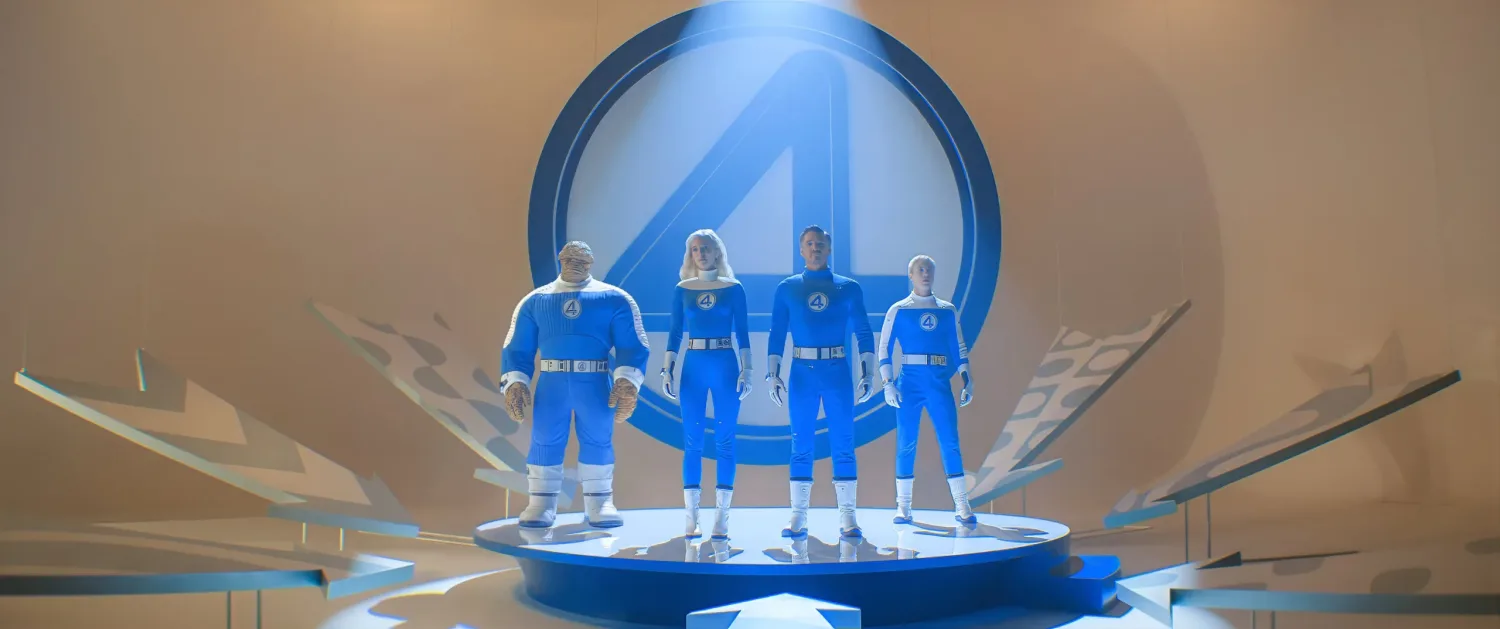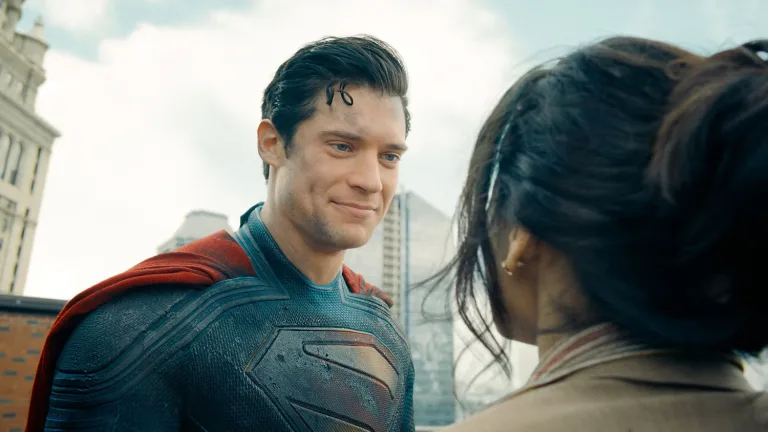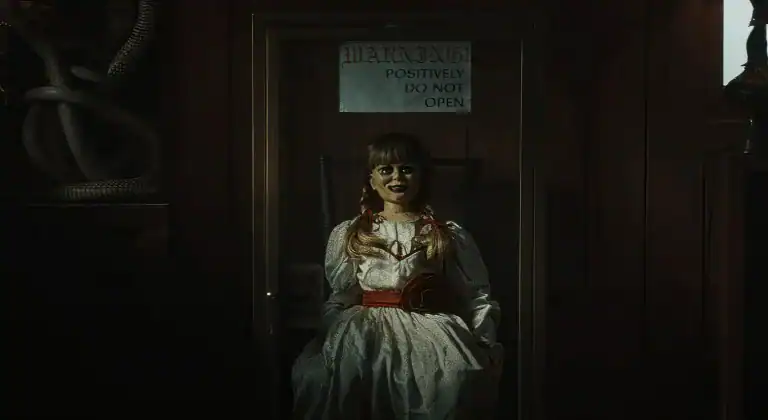
Marvel’s First Family has always been a tricky adaptation. On the page, the Fantastic Four shaped modern superhero comics, but on screen they’ve been plagued by misfires. The 2005 film felt campy, its sequel stumbled with tone, and the 2015 reboot is remembered mostly for its critical free fall. Fantastic Four: First Steps finally breaks that cycle. Instead of another awkward origin story or multiverse gimmick, Marvel delivers a story about family, responsibility, and survival. This isn’t just another superhero film—it’s one that feels personal, heartfelt, and yes, fantastic. For longtime fans, it’s vindication; for newcomers, it’s an accessible starting point.
Plot Overview: A Family Already in Motion
Rather than opening with accidents or experiments, the story begins midstream on Earth-828. This alternate timeline gives director Matt Shakman room to play with aesthetics and tone without being shackled to mainline MCU continuity. Reed Richards and Sue Storm are married, expecting their first child, and already established as heroes alongside Johnny Storm and Ben Grimm.
Their world is turned upside down when the Silver Surfer arrives with a chilling ultimatum: surrender the unborn child or Earth will be marked for destruction.
It’s a premise that flips expectations. Most superhero movies treat pregnancy as a background detail at best. Here, Sue’s pregnancy becomes the central emotional engine. By tying the survival of Earth to the protection of a child, the story gives cosmic stakes a deeply human core. This decision to begin mid-stride instead of with an origin tale pays off. Audiences step into a world that feels mature, grounded, and already breathing.
Deep Dive: Retro Futures and Cosmic Threats
Reed Richards and Sue Storm at the Core
Pedro Pascal plays Reed Richards as the rare superhero who’s compelling precisely because he’s boring. His socially awkward, methodical demeanor makes Reed feel like a real scientist—less quip machine, more absent-minded genius. Marvel has often leaned on charisma and humor for its leads, but here Pascal’s restraint becomes a strength. His Reed is the glue holding the team together, even when he forgets basic human conventions in pursuit of science.
Vanessa Kirby’s Sue Storm is the film’s emotional anchor. Earlier portrayals, from Jessica Alba to Kate Mara, often left Sue sidelined. Kirby changes that completely. Her Sue is strong, vulnerable, and fiercely protective, making her the most compelling maternal figure Marvel has put on screen. When she confronts the Silver Surfer, it isn’t just superhero bravado—it’s a parent’s desperation blended with courage.
The Silver Surfer and Galactus
Julia Garner’s Silver Surfer, played through full motion capture as Shalla-Bal, is already a breakout. Her performance has gone viral for good reason. She delivers lines like “Earth is marked for death” with chilling poise, sounding at once terrifying and oddly compassionate, as though easing Earth into cosmic hospice care. Her design, marked by copper veining and weathered cosmic textures, adds centuries of unspoken history to the character.
Ralph Ineson’s Galactus is equally impressive. Instead of a roaring CGI giant, he’s a weary god older than the universe itself. His voice carries fatigue as much as menace. In one memorable scene, he scoops a portion of Earth into his hand and sniffs it like fine wine—an image that is both horrifying and strangely poetic. Galactus here isn’t a monster to punch, but a force of nature with a personality, making him one of Marvel’s most nuanced villains.
A World Built from Retro Dreams
The production design may be the film’s most striking achievement. Imagine Mad Men colliding with The Jetsons and sprinkled with Fallout. Flying cars gleam like 1960s prototypes. Skyscrapers stretch with analog optimism. Even the team’s Fantasticar looks like it rolled off a futuristic Detroit assembly line. This retro-futurist aesthetic sets Earth-828 apart from other Marvel timelines, offering audiences a cinematic sandbox that feels both nostalgic and visionary.
Michael Giacchino’s score completes the experience. Known for balancing grandeur with intimacy (Up, The Batman), he brings the same touch here. Themes swell with triumph during action but taper into tenderness during character beats. Combined with IMAX presentation, the visuals and score create a sense of awe that feels earned, not obligatory.
What We Loved: Standout Moments
- Julia Garner’s Silver Surfer: A haunting, empathetic presence who instantly ranks among Marvel’s best cosmic characters.
- Ralph Ineson’s Galactus: Less cartoonish villain, more weary god, giving the film unexpected philosophical weight.
- Retro-futurist production design: A world that feels alive, stylish, and distinctive from standard MCU backdrops.
- Vanessa Kirby’s Sue Storm: Emotional weight and strength that ground the film in relatable stakes.
- Natural humor: Johnny teasing Reed—“I take back every single bad thing I’ve said about you… to myself, in private”—lands because it feels earned, not forced.
- Michael Giacchino’s score: Enhances emotional resonance while amplifying the retro tone.
What Fell Flat: Missed Opportunities
- Johnny Storm underdeveloped: Joseph Quinn brings charm and has his moments, but the character felt less “Johnny” most of the movie.
- Ben Grimm sidelined: Ebon Moss-Bachrach captures Ben’s pathos, yet his subplot with Natasha Lyonne feels cut short.
- Short runtime: At under two hours, some relationships and arcs deserved more breathing room. An extended cut could deepen secondary stories. And we need an extended cut!
- Balance of focus: Reed and Sue receive full attention, while Johnny and Ben feel like satellites in their own movie.
Final Verdict: Why This One Works
After decades of false starts, Marvel has finally given the Fantastic Four the adaptation they deserve. Fantastic Four: First Steps doesn’t rely on multiverse mechanics or endless sequel bait—it tells a focused story about people who happen to be superheroes. By grounding cosmic spectacle in personal stakes, the film achieves what earlier attempts couldn’t: it makes Marvel’s First Family feel truly human.
The reception speaks for itself. With an 87% Rotten Tomatoes score, this is the franchise’s first “Certified Fresh” entry. Compare that to 2005’s Fantastic Four at 27%, Rise of the Silver Surfer at 37%, and the 2015 reboot at a dismal 9%, and the leap is staggering. Critics are hailing it as Marvel’s best character-driven story in years, a refreshing contrast to films overloaded with setups and spinoffs.
This one deserves the big screen. The IMAX scale is worth the premium ticket, the performances breathe life into icons, and the story proves that caring about the people around you can be the most powerful superpower of all.
Stay tuned for our full video breakdown. In the meantime, stop by our YouTube channel and subscribe for more reviews — https://youtube.com/@flixinaminute



